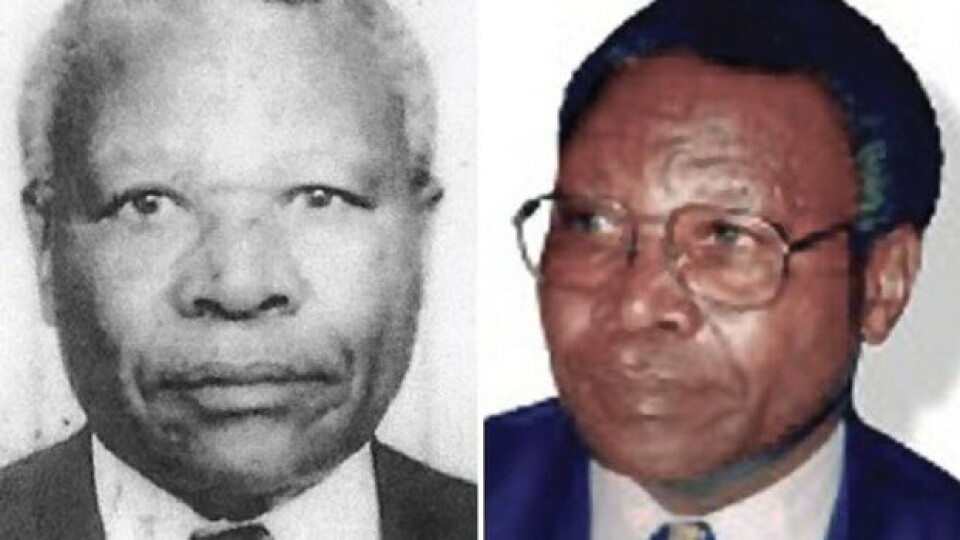Copyright : Re-publication of this article is authorised only in the following circumstances; the writer and Africa Legal are both recognised as the author and the website address www.africa-legal.com and original article link are back linked. Re-publication without both must be preauthorised by contacting editor@africa-legal.com
Reflections on Félicien Kabuga Arrest

One of Rwanda’s most wanted men accused of genocide has been arrested in Paris after being on the run for 26 years. The impact of this will bring more closure and hope to victims of the Rwandan Genocide, writes Adetokunbo ‘Toks’ Hussain, an International Law Consultant at the International Nuremberg Principles Academy.
On May 16, 2020, the United Nations International Residual Mechanism for Criminal Tribunals announced that Félicien Kabuga, one of the most wanted fugitives in the world - and dubbed Africa’s most wanted man - was arrested in Paris by French authorities, following an extensive joint investigation with the Mechanism’s Office of the Prosecutor.
The 84-year old Kabuga is alleged to have played a significant part in the 1994 genocide against the Tutsi in Rwanda. In particular, it is alleged that he financed the genocidal operations, created the notorious Interahamwe militia and equipped it with the machetes used in the majority of its murders. Furthermore, he also ran the Radio Télévision Libre des Mille Collines, which incited hate propaganda.
The United Nations International Criminal Tribunal for Rwanda indicted Kabuga in 1997 on seven counts of genocide, complicity in genocide, direct and public incitement to commit genocide, attempt to commit genocide, conspiracy to commit genocide, persecution and extermination.
During this time, I was a young child attending the British School of Warsaw. As I grew up and read more about the genocide and suffering, as I watched videos about the attrocity, I was saddened by how a nation could be so divided by ethnic lines. Suddenly, I understood what the philosopher John Rawls (A Theory of Justice (1971)) meant when he said “Distrust and resentment corrode the ties of civility, and suspicion and hostility tempt men to act in ways they would otherwise avoid”.
After 26 years, Kabuga was found living under a false identity in the Parisian suburbs, with the help of his children, according to the reports. I imagine an investigation into how he managed to evade the authorities for a long time is something that will be forthcoming.
Nonetheless, this marks an important milestone in the pursuit of justice for Rwanda. I can only imagine the sighs of relief from the survivors of the genocide. As soon as I read the news, I immediately thought about one of such survivors whom I had met in London in the 2014 ‘End Sexual Violence in Conflict Summit’ hosted by Angelina Jolie and then UK Foreign Secretary William Hague. I do not remember her name, but the sadness and hope in her eyes was memorable and palpable. I remember writing about the encounter as follows:
‘Sexual violence against women in particular has been in used in the past as a targeted and deliberate weapon of warfare in order to expunge an ethnic group (ethnic cleansing) – the Rwandan conflict springs to mind – and commit other atrocities that cannot be expressed in words. The agony of the victims cannot be imagined; during the summit, one such [survivor] could only express her experience through a song. That was such a moving moment.’
So I hope that like the Rwandan lady, whose song of sadness and hopefulness bemused but inspired me, Rwanda feels more hopeful and more confident in international justice. Kabuga will stand trial in The Hague at the appropriate time. What we must not do however, is engage in a trial by media. We must remember that there is a presumption of innocence i.e. he is considered innocent until he is proven or found guilty.
Above all, we must remain hopeful.
Toks was previously a legal intern in the Office of the President in the United NationsInternational Residual Mechanism for Criminal Tribunals (Mechanism) and will now be joining one of the international defence teams working on one of the last cases of the Mechanism (led by Wayne Jordash QC). Prior to working in the Mechanism, he was Assistant to Counsel in the China Tribunal led by Sir Geoffrey Nice QC.
Toks also serves as the Co-Head of the British Nigeria Law Forum: Junior Lawyers Division and received the 2020 BPP Professional Development Award.
Read Africa Legal’s earlier interview with Toks here.
To join Africa Legal's mailing list please click here
